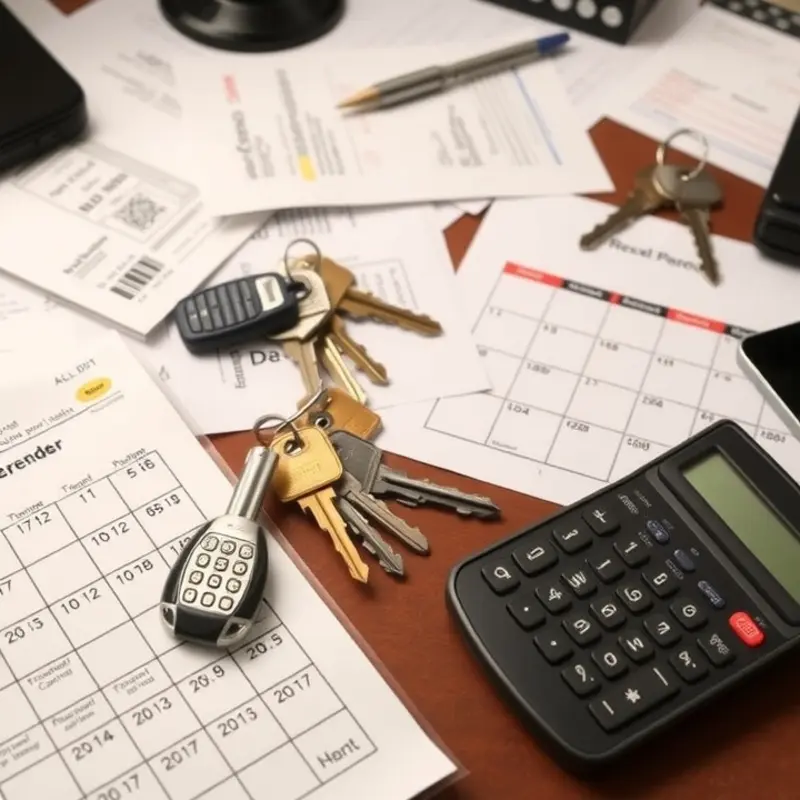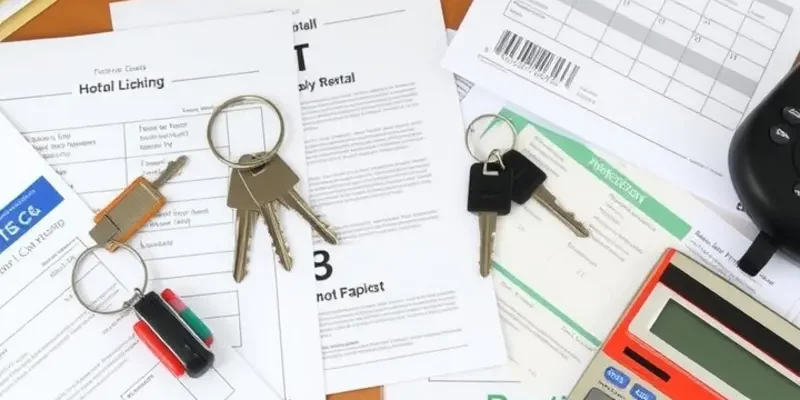Renting can often feel like a maze of paperwork and expenses, especially for young professionals, students, and families. While many are prepared for a monthly rent payment, the reality includes a variety of unexpected costs that can pop up and disrupt even the best-planned budgets. From application fees and security deposits to maintenance costs and utilities, the financial landscape of renting is diverse and can be daunting. Understanding how to budget for these hidden costs is essential in ensuring peace of mind and maintaining good financial health. By anticipating these potential expenses and taking proactive steps to prepare for them, you can confidently navigate your renting journey. Whether you’re a first-time renter or a couple looking for a family-friendly space, this guide will help you gain financial clarity and equip you with practical strategies to manage your rental costs effectively.
Identifying Common Unexpected Rental Costs

Renting might seem straightforward, but unexpected costs can catch many by surprise. Preparing for these expenses requires careful budgeting and foresight. Let’s dive into some common unforeseen costs associated with renting, and some tips to financially prepare for them.
Application Fees and Deposits
When considering a rental, the first surprise often comes with application fees. These fees cover background and credit checks, ranging from $30 to $100. Beyond this, a security deposit and possibly a first and last month’s rent can add a hefty upfront cost. Some landlords may require a holding deposit to take the listing off the market, which might catch you off guard if you’re not prepared.
Move-In Costs
Aside from deposits, moving expenses can quickly accumulate. Hiring movers, renting a moving truck, and packing supplies each add to the initial expenditure. If moving between cities, the costs can escalate even further due to fuel and transportation fees.
Utilities and Setup Fees
Don’t forget the cost of setting up utilities. This might include connection fees for electricity, water, internet, and cable. Service providers often charge a setup fee or deposit for new customers, which can extend your budget beyond initial expectations. Budgeting for the first month’s utilities, which may be higher due to fees, is wise.
Insurance and Safety Related Costs
Renter’s insurance is often required, adding a monthly expense you need to factor in. In some cases, additional safety measures like a balcony safety net might be necessary, especially for those with pets or children, incurring further costs.
Maintenance and Repairs
While basic maintenance should fall under your landlord’s responsibility, minor repairs may cost you out-of-pocket. Consider creating a small fund for unexpected repairs like fixing a window or a pipe leak, as landlords might not always respond quickly to maintenance requests.
Unexpected Rent Increases
Yearly rent increases can catch tenants off-guard. Although often stipulated in the lease, renters sometimes overlook these clauses. It’s crucial to buffer your budget to accommodate at least a minor increase each year.
Parking and Storage Fees
If your new place doesn’t come with free parking, you might need to factor in monthly parking fees. Also, some units offer additional storage space at a premium, so budgeting for these extras can be essential.
Routine Maintenance and Cleaning Supplies
Keeping your unit clean and organized requires supplies you might not initially consider. Over time, these costs can add up. Investing in apartment-friendly DIY cleaning products can be both cost-effective and environmentally friendly.
Preparing for these unexpected expenses means more than just setting aside money—it involves understanding your lease, researching neighborhood norms, and maintaining an emergency fund. By anticipating these costs and carefully planning your budget, you’ll enjoy a smoother renting experience and avoid financial strain.
Practical Budgeting Strategies for Renters

Renting an apartment often involves costs that can catch young renters off guard. Developing practical budgeting strategies helps prepare for these surprises. Start by crafting a realistic budget that accounts for all expenses, including some you may not anticipate.
Creating an emergency fund is a pivotal step. Aim to save three to six months’ worth of living expenses. This safety net will cover unexpected costs such as medical emergencies, sudden rent increases, or job loss. Everyone’s financial situation varies, but consistency in saving, even in small amounts, builds over time.
Utilize budgeting apps to manage your finances effectively. These tools categorize expenses, track spending habits, and even alert you if you’re nearing your spending limits. Without specific names, focus on apps that offer features like customizable budgets, bill reminders, and reports that visualize where your money goes each month.
Tracking potential costs comprehensively is crucial. Monthly rent is only a part of your costs. Be sure to include utilities, internet, renter’s insurance, and other recurring charges in your budget. Many renters neglect to plan for one-time expenses such as furniture purchases, repairs, or deposits. Make a list of these potential expenses and allocate funds accordingly.
For young professionals and students, consider alternating between buying new and second-hand items. This balance allows for quality purchases in areas that matter most, while still keeping costs manageable. College students, in particular, should look into apartments near their universities to potentially save on commuting expenses.
Couples and families can benefit from a unified approach to budgeting. Open dialogues about expenses and future financial goals enhance accountability. Establish a shared budget where each partner contributes. Allocate funds for individual discretionary spending to offer some financial independence.
Track every dollar that leaves your account. Note down every cost, no matter how small. Doing so reveals spending patterns and helps identify areas to cut back. For instance, buying lunch daily can quickly add up, but bringing lunch from home a few times a week could save significant amounts over a year.
As you refine your budget, revisit and adjust it periodically. Life situations change, and your budget should reflect that. Flexibility is essential in responding to increased bills or windfalls. Each adjustment should aim to maintain the balance between savings and expenditures.
In navigating the myriad expenses of renting, these strategies serve as a guidepost. Preparing and planning for unexpected costs allows young renters to enjoy their homes with peace of mind, secure in their financial strategies.
Final words
In conclusion, navigating the rental market can be both exciting and challenging, particularly when it comes to budgeting for unexpected costs. By understanding common fees and applying practical budgeting strategies, you can minimize stress and confidently handle your financial obligations as a renter. Remember, knowledge is power when it comes to managing your finances. By taking the time to prepare for unforeseen expenses, you’re not only safeguarding your budget but also ensuring a smoother and more enjoyable renting experience. As you embark on your rental journey, keep these insights in mind to maintain financial clarity and a stress-free living situation.









